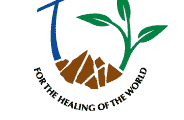






|
News and
Media PRESS RELEASE NO. 34 Indigenous Peoples Participants in LWF Assembly Amplify Global Concerns Call to Join in Common Journey on the Path of Healing WINNIPEG, Canada, 31 July 2003 – For the first time in the history of the Lutheran World Federation (LWF) meetings of Indigenous Peoples were held during the Tenth Assembly in Winnipeg. Led by Bishop Medardo E. Gomez Soto of the Salvadoran Lutheran Synod, representatives of Indigenous Peoples from Bangladesh, Bolivia, Costa Rica, El Salvador, Greenland, Honduras, India, Papua New Guinea, Sweden and Norway formulated the issues that confront them in a Message Concerning Indigenous Peoples that was presented to the Assembly."We believe that our peoples had a history with the Creator prior to the coming of the missionaries," Johannes Marainen from Church of Sweden told Assembly participants on July 29. "The Fourth Commandment tells us to honor our fathers and mothers, and we believe that we do so by honoring our cultural heritage and not by rejecting it," he said in his presentation of the Indigenous Peoples’ message. The indigenous participants honored the fact that they had been gathered at the traditional lands of the Cree, Ojibway and Assiniboine, and expressed their solidarity as they did with all the First Nations and the Inuit peoples of Canada. They also acknowledged that many of the basic human rights of Canada’s Indigenous Peoples, like in other parts of the world, were still not implemented into the national policy. The Assembly in its Message on July 30 acknowledged that the Indigenous Peoples feel "powerless and voiceless regarding self-determination, access to education, health care and job opportunities." It declared land rights as "fundamental to the survival of Indigenous Peoples and their cultures," and called on LWF member churches to "continue to recognize and support the basic human rights of Indigenous Peoples" all over the world. Lutheran churches were also urged to "acknowledge and seek the presence of Indigenous Peoples" within their churches, "affirm Indigenous Peoples as equal partners" and "challenge paternalistic patterns" which keep Indigenous Peoples out of participation in life and decision-making. There are about 370 million Indigenous Peoples in more than 70 countries worldwide who seek recognition of their identities, ways of life and right to traditional lands and resources, according to the Assembly of First Nations, an organization representing 700,000 indigenous Canadians living in 633 communities in rural and urban areas. According to a 1996 Royal Commission on Aboriginal Peoples, "the physical and spiritual decline of Aboriginal communities in Canada is the result of a federal Aboriginal policy that denies Aboriginal rights" and which "deprives Aboriginal Peoples of their traditional lands." The solution to many of the problems faced by Aboriginal Peoples requires compromises from non-Aboriginal members of society that would return land and resources to them. (456 words) The Tenth
Assembly of the Lutheran World Federation (LWF) is taking place
21-31 July 2003 in Winnipeg, Canada, under the theme "For the
Healing of the World." It is being hosted by the Evangelical
Lutheran Church in Canada (ELCIC). To order photographs, please contact LWF-Photo@lutheranworld.org [Site Map] [LWF Assembly Home] [Links] [LWF Home] |

|